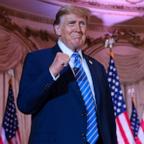Google says Apple exec rejected app for iPhone
SEATTLE -- Google said Apple's top marketing executive personally told the company that its Google Voice application had been rejected because it duplicates the telephone dialer on the iPhone and could be used as a replacement.
The newly disclosed discussion, revealed in a regulatory filing made fully public Friday, contrasts with Apple's own denial that it rejected the program. Apple said Friday that the two Silicon Valley companies are still discussing the application.
The Federal Communications Commission is looking at Apple's block on the Google Voice app as part of a bigger investigation into how wireless industry practices affect consumers. In August, Apple, Google and Dallas-based AT&T, the only wireless carrier to offer the iPhone in the U.S., sent the commission letters responding to its questions.
The specifics of the talks between Apple and Google were redacted from Google's original letter. The Mountain View, California-based company allowed the FCC to post an unredacted version Friday "in the interest of transparency," according to a blog post.
Google Voice lets people pick a new phone number, then route incoming calls to cell, office or home phones. It also lets users place calls, including international calls at low rates, from within the application. IPhone owners can still use a Web browser version of Google Voice, but its features are limited.
In a section of its letter that had originally been redacted, Google said Phil Schiller of Apple told Google's Alan Eustace, a senior vice president, during a July 7 phone call that Apple was rejecting the program.
Google also made public Friday some details related to Apple's rejection of the Google Latitude iPhone app, a map application that lets people share their location with friends.
Google said Apple rejected that program because it had the potential to replace Apple's own maps program or "create user confusion" over the two companies' programs. Schiller and Eustace met in person in April, Google said, at which point Schiller laid out the reasons for the rejection.




